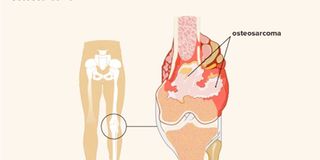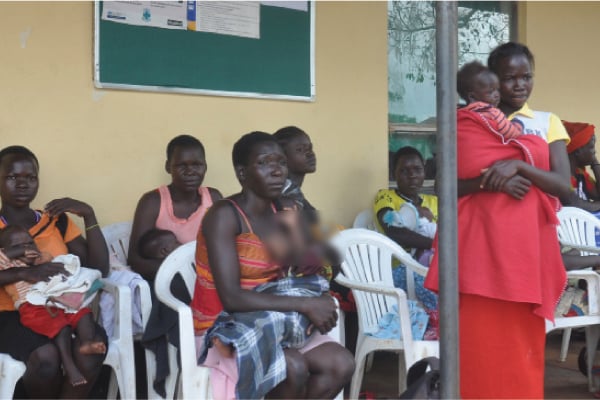Prime
Signs of bone cancer to look out for

Bone cancer is a rare type of cancer that is commonly manifested among children and young adults.
What you need to know:
- Bone cancer is a rare type of cancer that is commonly manifested among children and young adults
A doctor has outlined the key issues to look out for in order to catch bone cancer in its early stages.
Dr Noleb Mugisha, an oncologist at Uganda Cancer Institute (UCI), said bone cancer is a disease where the cells multiply abnormally causing a tumor.
He said there are three types of bone cancer but the commonest in Uganda is Osteosarcoma which affects people in the ages of 20-35.
Bone cancer is a rare type of cancer that is commonly manifested among children and young adults.
Dr Mugisha in an interview noted that some of the signs of bone cancer include bone pain, tenderness on the affected area and fractured bone.
“The common sign is swelling in the affected part of the bone and the swelling is initially painless and may be neglected or confused for a traumatic event. Then the swelling gets bigger and causes pressure symptoms, this is the time pain worsens.” Dr Mugisha said.
He explained that if bone cancer is not treated early it can spread to other parts of the body.
Dr Mugisha advised parents and guardians to be keen about their children and if they have any swelling to take me to qualified medical personnel.
“If your child complains of pain in the leg or arm or if they have difficulty in walking do not ignore them. They might come from school when the leg is broken yet they have been telling you and never took it seriously,” he said.
Treatment
Dr Mugisha said surgery is the most common treatment for bone cancer where the affected part is cut off and like many other cancers, bone cancer is also treated by chemotherapy and radiotherapy.
He noted that unlike some cancers with risk factors like lung and liver cancer, bone cancer has no obvious causes.
“There are no obvious causes but usually I think there is something that damages the bone and when it is trying to heal, it develops cancer but there is no known risk factors to avoid like in lung cancer,”
Dr Fred Okuku, a consultant oncologist at UCI, said bone cancer is caused by abnormalities in the genes and can be also inherited from parents while in some cases the causes are unknown.
According to the World Health Organisation, cancer is a leading cause of death for children and adolescents. The likelihood of surviving a diagnosis of childhood cancer depends on the country in which the child lives: in high-income countries, more than 80 percent of children with cancer are cured, but in many low-income countries, like Uganda, less than 30 percent are cured.
The reasons for lower survival rates in such countries include; delay in diagnosis, inability to obtain an accurate diagnosis, inaccessible therapy, abandonment of treatment, death from toxicity (side effects), and avoidable relapse




